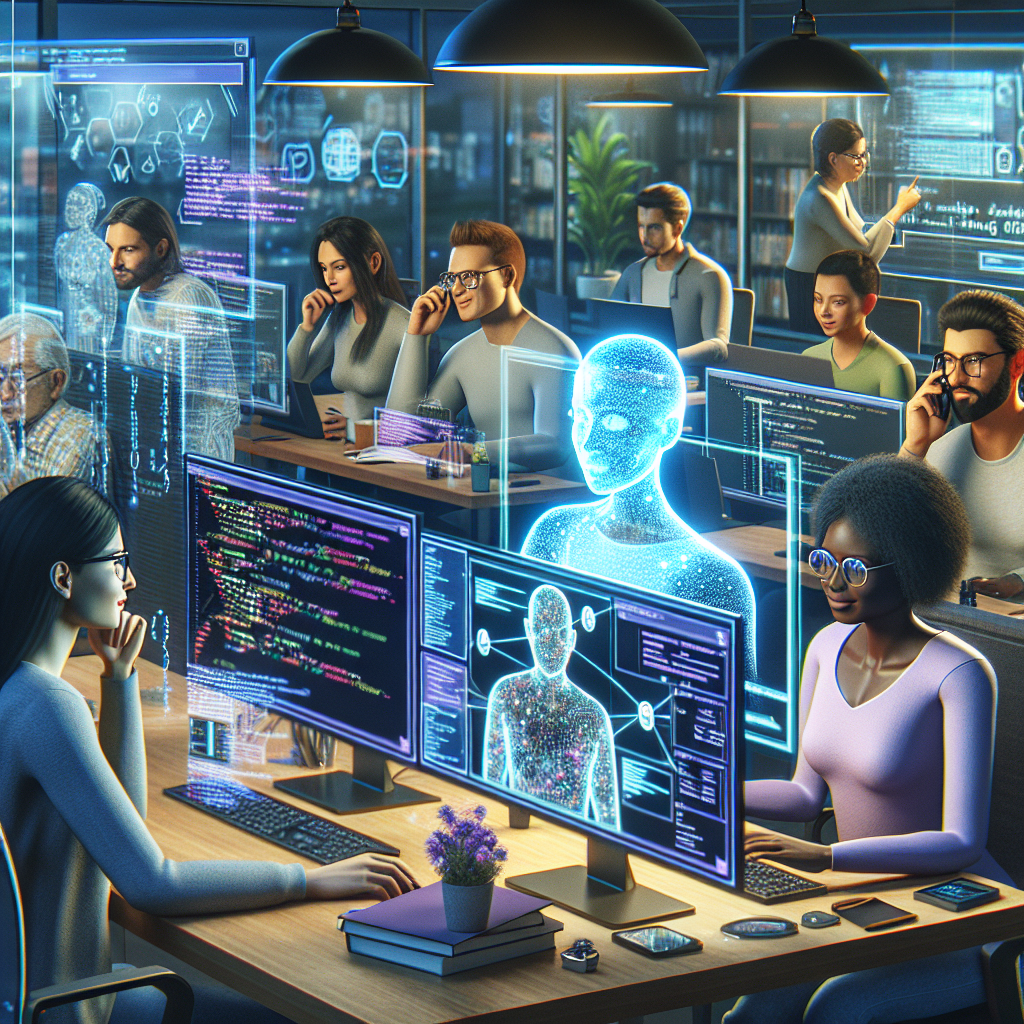Empowering Every Coder: How Personalized AI Can Revolutionize Open Source Software Onboarding

Empowering Every Coder: How Personalized AI Can Revolutionize Open Source Software Onboarding
Welcome, digital explorers and tech enthusiasts! Today we’re diving into a fascinating realm where AI technology meets the vibrant world of Open Source Software (OSS). A recent study led by Italo Santos and his team unwraps an exciting vision: using powerful AI tools like ChatGPT to cater to the diverse ways newcomers approach coding challenges in OSS projects. By personalizing AI responses to fit individual problem-solving styles, this approach aims to break down barriers and make the open-source community a more inclusive playground. Let’s take a closer look at how this idea unfolds and its potential impact on the digital universe.
What Are Open Source Software Projects?
For the uninitiated, OSS projects are like treasure troves of collaborative coding, where developers from all walks of life can contribute to creating and refining software that everyone has the right to use, modify, and distribute. Popular examples? Think Linux, GIMP, and the OG of office suites, LibreOffice. However, diving into these projects isn’t always smooth sailing for newcomers. Navigating complicated documentation, decoding issue descriptions, and sometimes encountering unwelcoming communities can deter fresh talent from sticking around.
Enter AI: The New Guru on the Block
With the rise of conversational AI like ChatGPT, there’s a digital coach to accompany you through this OSS maze. Millions are already harnessing ChatGPT’s potential over traditional Q&A sites like Stack Overflow to demystify complex coding concepts. However, while AI provides a powerful means of support, it brings its own bag of challenges—hello, biases!
The Bias Dilemma
Just like our brains, AI systems learn from their environment (datasets, in this case). If those environments skew toward particular biases, such as certain problem-solving styles or even gender, their outputs might inadvertently mirror those skewnesses. This is particularly impactful in OSS settings, where newcomers, who might not fit the “typical” coder mold, could find themselves at a disadvantage.
Personalizing AI Responses: The Game Changer
Imagine this: instead of a one-size-fits-all response, AI tailors its advice based on the problem-solver’s unique style. The research paper suggests that by using something called persona-based prompt engineering, AI can optimize its assistance to match individual preferences.
Personas: Abi and Tim
The paper borrows from the GenderMag framework to create personas like Abi and Tim, representing diverse problem-solving methods associated with gender distinctions. Abi’s style is procedural and risk-averse, preferring detailed steps with reversibility. On the flip side, Tim is all about experimentation and exploration. When asked, “How do I submit a pull request?” Abi gets a step-by-step guide ensuring clarity, whereas Tim is encouraged to “tinker around,” aligning with his hands-on approach.
Real-World Implications: A New Dawn for Inclusivity
Personalizing AI responses isn’t just a tech wizardry—it holds the power to transform OSS environments into inclusive ecosystems. With AI fine-tuning its interactions, barriers faced by underrepresented groups in tech could significantly narrow, inviting more diverse contributions and perspectives into the fold.
Potential Applications and Implications
This nuanced AI approach champions diversity and inclusivity. But it’s not just about making newcomers feel more comfortable; it’s about enriching the OSS community as a whole. Diverse teams are not just more colorful but also more productive and innovative. These personalized AI tools could pioneer a new generation of collaborative software initiatives, driving rapid advances and creative solutions in the tech industry.
Key Takeaways
-
Flexibility in AI: The study emphasizes the need for AI tools to adapt to varied problem-solving styles, which could make OSS communities more welcoming for everyone.
-
From General to Specific: Using persona-based prompt engineering can break down complex problems into manageable solutions tailored to the individual’s style.
-
Diversity is Key: The inclusion of diverse problem-solving styles not only promotes equality and representation but could result in more productive and innovative OSS projects.
-
Opportunity for Growth: There’s a call for further research to refine these AI-driven techniques, which could bring even more adaptability and accessibility into coding communities.
-
Improve Your Interactions: Next time you interact with an AI tool, consider how you can gently prompt it to cater more closely to your unique style. Think about what kind of guidance best suits you and lead the AI conversation in that direction.
And there we have it, friends—an intriguing look into how adaptable AI could potentially change the landscape for those embarking on OSS ventures. By acknowledging and supporting our diverse cognitive styles, we are not only boosting individual learning and contributions but also weaving a richer, more vibrant tapestry within the tech ecosystems we all cherish.
As we stand at the precipice of this exciting AI-enhanced horizon, remember: great power indeed brings great responsibility. Let’s harness it to uplift every aspiring coder into an empowered contributor in the open-source world!
If you are looking to improve your prompting skills and haven’t already, check out our free Advanced Prompt Engineering course.
This blog post is based on the research article “Great Power Brings Great Responsibility: Personalizing Conversational AI for Diverse Problem-Solvers” by Authors: Italo Santos, Katia Romero Felizardo, Igor Steinmacher, Marco A. Gerosa. You can find the original article here.




